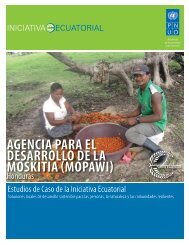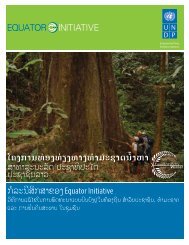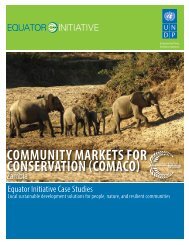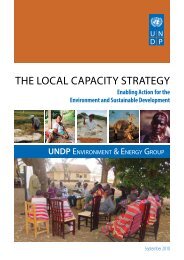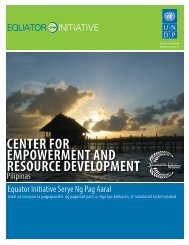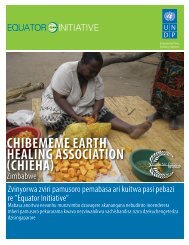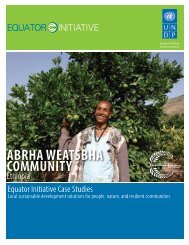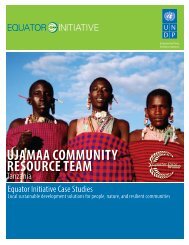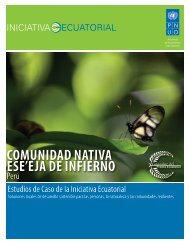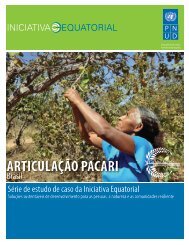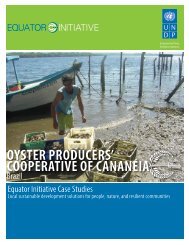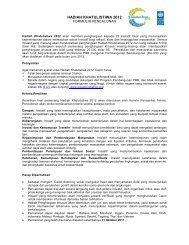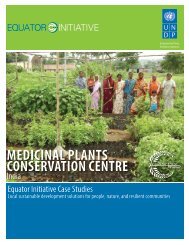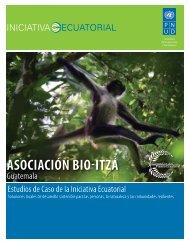MOHÉLI MARINE PARK - Equator Initiative
MOHÉLI MARINE PARK - Equator Initiative
MOHÉLI MARINE PARK - Equator Initiative
You also want an ePaper? Increase the reach of your titles
YUMPU automatically turns print PDFs into web optimized ePapers that Google loves.
ImpactsThe creation of the Mohéli Marine Park had tangible benefits forthe marine environment and its member communities in the earlyyears of its existence. For instance, coral health was seen to improvethanks to bans on destructive fishing practices. Between 1998 and2001, live coral cover on the park’s reefs increased from 30% to 65%.Other regulations regarding local access include bans on harvestingsea cucumbers, starfish, and crustaceans, as well as a ban on turtlepoaching. Turtle nesting sites were found at more locations on theisland’s southern beaches as a result.While the conservation of more than 400 square kilometres of oceanhas had visible benefits for the region’s endangered marine species,sustainable management regulations have also produced socialand economic gains for local communities. Government fundingfor sustainable livelihood projects facilitated the construction ofecotourism lodges by four community development associations.This led to the number of tourists visiting Mohéli to rise from 75tourists per village in 1998 to 140 in 2001. This has had spill-overeffects in terms of creating related livelihood opportunities forvillagers. Community members have been employed as guides,in building and managing accommodation facilities, and sellinghandicrafts. By 2002, the initiative reported the direct creation of 30new jobs for local people.Sustainable harvesting regulations on fishing allowed localfishermen to increase catch sizes. Between 1998 and 2002, catch sizenearly doubled from 160kg per month to over 300kg, benefitting250 fishermen working in the park. With increased revenues fromhigher fish catches, villagers were able to buy motor boats for use infishing, reserve surveillance, and tourism activities.Limits to long-term viabilityDespite the initial successes of the Mohéli Marine Park, it is currentlyoperating at a vastly reduced capacity. Although some componentsof ‘Project Biodiversity’ were extended for two years in 2003 underthe title ‘The Project for Rehabilitation Activities for the Conservationof Biodiversity’, all GEF-funded activities concluded in 2005.Since then, while the Mohéli Marine Park still nominally exists,the management of the park at the community level has beensignificantly eroded. Tourism numbers have declined dramaticallyfrom their initial levels, and lack of funding for monitoring andenforcement of park regulations has led to increases in poaching ofhigh-value species such as sea turtles.A study conducted in 2007 interviewed a large number of respondentsacross the park’s ten communities to assess its impact. All of the focusgroups agreed that the existence of the park was still important,7



